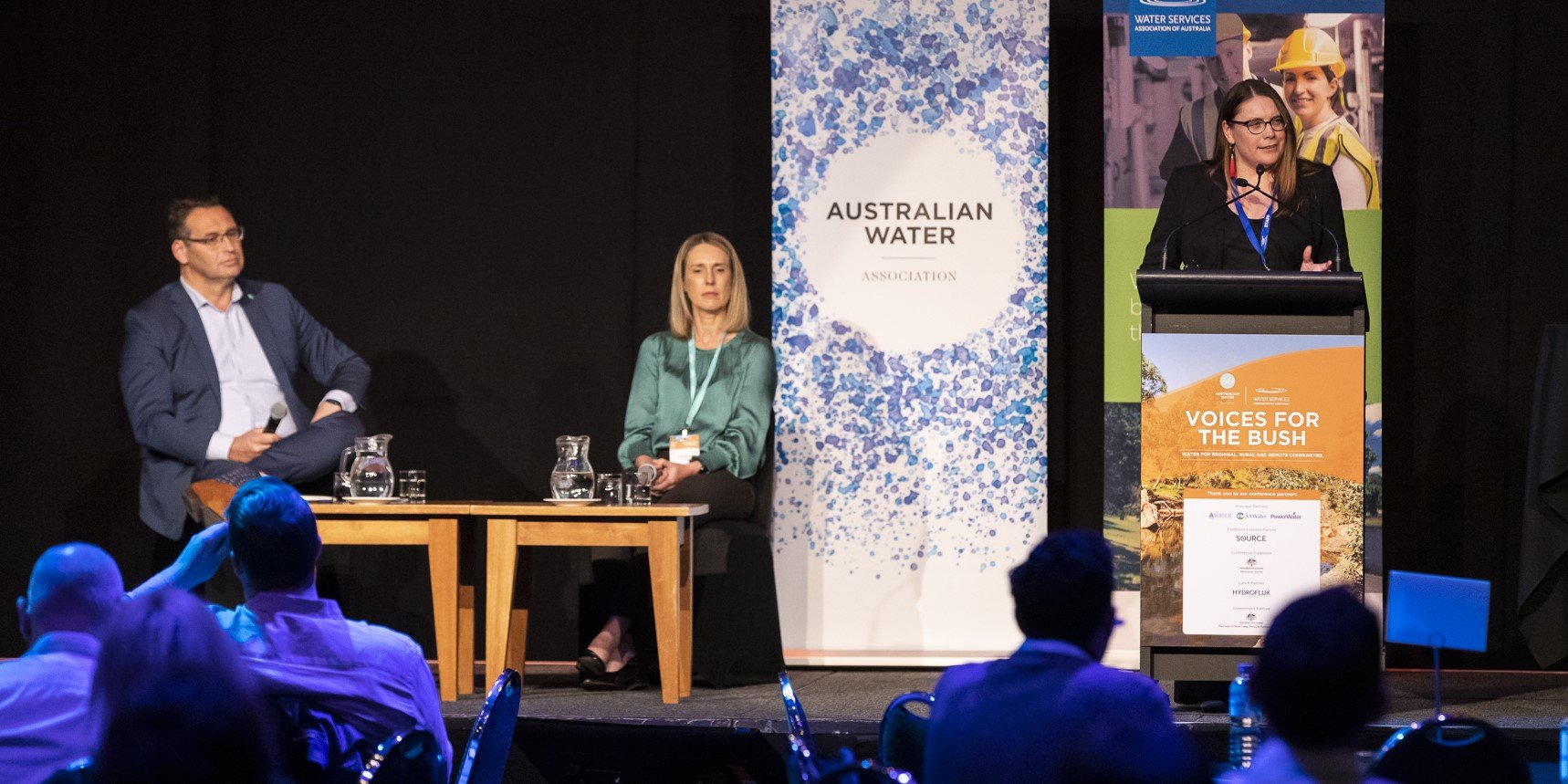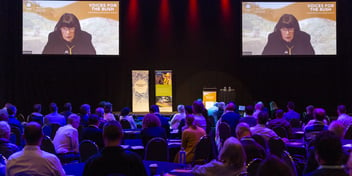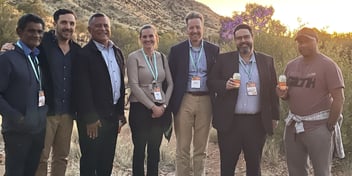Keeping our voices heard

At the conclusion of last week’s Voices for the Bush conference in Alice Springs, delegates were left with a discussion on “Keeping Our Voices Heard”. AWA Chief Executive Corinne Cheeseman and WSAA Executive Director Adam Lovell engaged in a discussion hosted by AWA Deputy CEO Kirsty Blades, exploring a summary of what had been discussed over the prior two days and delving into what AWA & WSAA can collaborate on to keep the focus on this incredibly important issue.
Several significant issues and challenges facing remote and regional water management were highlighted. The governance arrangements in these areas are complex, and the exact scale of the service level and water quality issues across Australia are still being determined.
Particularly, the need to take action to address these issues now, while also respectfully building relationships with affected communities with culturally appropriate engagement, was highlighted. This engagement is costly and not often funded, yet crucial to achieving successful outcomes for all.
“The magnitude and scale of the challenges we are facing are sobering,” said Cheeseman. “The open and honest conversation we have had has been timely.
“Our next steps need to explore how we work together and how we work with all levels of Government, and how Indigenous communities can be empowered and be a part of finding the solutions to the challenges they’re facing.”
“There has been a positive mood for change across the board, and I’ve been particularly happy to see the involvement at this conference of Federal Government ministers, as well as the people on the ground delivering to remote and regional communities,” said Lovell.
“It is important that going forward we use our voice to advocate for solutions to these challenges.”
Some opportunities were also highlighted, starting with the need for more listening, hearing and acting. As the value of water is quantified from a social, economic, health and environmental perspective, the opportunity to engage with the private sector and drive innovation is pivotal.
Crucially, steps taken by the Federal Government such as the formation of the new Department of Climate Change, Energy, the Environment and Water, the commitment to the renewed National Water Initiative and the establishment of the National Water Commission are important steps in this space.
Insights taken from participants through the yarning circles showed that, overwhelmingly, the needs to listen, learn, understand, influence and change were deeply and widely felt.
Lovell and Cheeseman noted that the yarning circles showed the importance of listening to First Nations people. With every participant speaking from the heart, they offered participants the time to reflect and connect with those around them.
The yarning circles also displayed an important aspect of cultural learning, a key step in moving forward from the conference. Blades noted that with engagement comes accountability, and the need to build cultural learning capability in the water sector improves cultural intelligence and provides a two-way learning opportunity.
Both Cheeseman and Lovell noted the importance of mentoring and the role AWA and WSAA both play in facilitating this. These mentoring experiences can also play a major role in the question of cultural learning going forward.
They also acknowledged the importance of skills development and capacity building in addressing the challenges ahead.
“There are of course geographical challenges, so we need to match the training needs of some of these isolated areas with relevant providers. We need to bring the needs of the sector together with the needs of these communities,” Cheeseman said.
“We can’t keep skating through forever,” Lovell added. “The skills summit is coming up but water management probably will not be represented, despite being one of the most essential skill sections for society.”
High-impact research is required to quantify the economic impact of poor health caused by water quality and its lack of availability, which will in turn strengthen the case for greater investment. Once we solve the water challenges, we can start to make a positive impact on reducing health issues and their economic and social impacts.
“This probably won’t be solved by any one industry or level of Government, but by everyone working together collaboratively,” said Cheeseman.
“This collaboration must improve sanitation and prevent diseases and health issues in these communities.”
The importance of Reconciliation Action Plans (RAPs) for all businesses working with water was noted. These RAPs not only begin the cultural learning journey but keep organisations accountable to key actions defined by Reconciliation Australia which are seen as crucial to building relationships, respect and trust between the wider Australian community and Aboriginal and Torres Strait Islander peoples.
Lastly, the need to continue to share knowledge was mentioned as a pivotal pathway forward, as we shine a light on the Sustainable Development Goals and connect need to proven solutions. This is key as we carry on the momentum of change from this Conference, inspired by the opportunity to work together.
“I hope we can all be allies in making the fundamental change required to deliver for rural, remote and regional Australia,” said Lovell.
“I am hopeful for change, and the role the water sector can play in supporting important issues such as addressing climate change and achieving an Indigenous voice to Parliament,” said Cheeseman.
“Let’s get started working together.”



